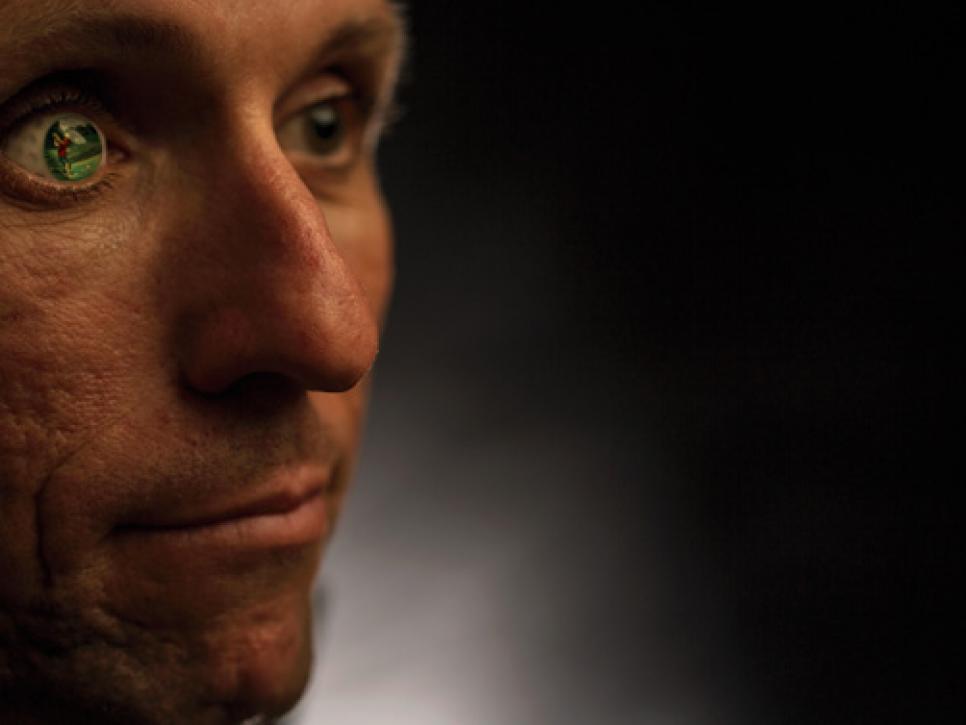Second Sight

The most important word for a prison guard is "no." A greenhorn will sometimes allow a tiny infraction, thinking this will win him favor, then it escalates. What starts as bringing a guy a McDonald's cheeseburger quickly becomes drugs or a cellphone. Show one soft spot, and inmates will stop at nothing to intimidate and manipulate you.
I was a correctional officer at Valdosta (Ga.) State Prison for 10½ years until I lost my eye. I believed I had the right temperament for the job—stern and even—and when I left the military it seemed the highest salary a guy with no college education could get.
Inmates enter the chow hall in single file. Enforcing this gets tricky because some are allowed to step away to get pills at the medical window. Well, one day in 2007, as one inmate stepped away, another went the other way outside my peripheral vision and swung a padlock attached to a belt into my eye socket. Then I was on the ground, being stabbed, feeling boot after boot after boot.
Each state has its own law, but at the time in Georgia I was equipped with only handcuffs, a camera and a radio. We were discouraged from carrying batons, but even if I'd had one, it wouldn't have mattered. It was a coordinated attack by 15 inmates, and four officers besides me suffered stab wounds from shanks carved out of wood and plastic. It was the closest to a full riot I ever saw. I owe my life to officer Michael Roberts, who rushed in the only door the inmates weren't blocking and dragged me out.
At the hospital when my wife and daughter saw me, they cried. The doctors' main concern was that my lung might collapse. Half my field of vision was red, but it didn't occur to me I'd lose the eye. That reality would take months to set in, as the healing fell short of expectations and the red turned to soft black.
When you lose an eye, it's almost impossible to forget it, even for a minute. An entire system of fluids and pressure is disrupted, and the headaches can be staggering. I'll spare you the details of the surgeries. I became so depressed and angry, trading days shut in at home for days battling bureaucracy to get medical bills paid. I'm still bitter about the worker's-comp deal I got talked into signing, but that's another story.
I was prohibited from running or lifting weights, but the doctor said I could walk. Man, walking is boring. My brother-in-law said I should try golf, but to me golf was something you did once a year—ripping around in the carts with your buddies and getting drunk.
But I gave it a try. I soon learned the most important thing about this game: The course is always there, and you don't need anybody else. I bought a membership at a public nine-hole course and a pushcart and began playing alone each morning. It was a tremendous psychological relief to be outside, thinking about my shot instead of my situation.
A surprise benefit was how the game got me used to seeing with one eye. I had been going to a rehab center to stand on balance beams, walk through cones, play computer games, but this was all useless. Judging yardage, reading the break of a green, squaring my stance to my target—these were the things that taught me to trust a new way of seeing the world.
I'm now 39, a 9-handicap, and I love my job in the golf shop at Quiet Pines Golf Course at Moody Air Force Base in Georgia. I can't help but chuckle when a co-worker gets stressed about an email or something.
At the prison, I had a supervisor who was adamant about regularly organizing softball and basketball games for the inmates. Some of society finds this distasteful—criminals having fun playing games on their tax dollars. But this supervisor was no softy. He was acting out of self-interest: To prevent violence, he'd learned nothing was better at relieving tension than a game.
With golf I've learned the same.

